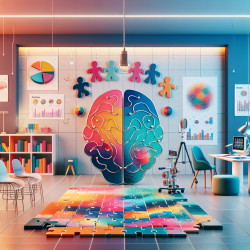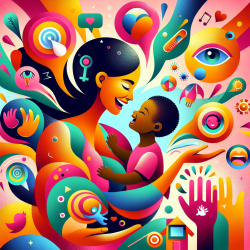Understanding Mentalization in Iranian Children
Mentalization, the ability to understand one's own and others' mental states, plays a crucial role in adaptive development and healthy functioning. Recent research by Zandpour et al. (2023) has expanded our understanding of mentalization by examining typically and atypically developing Iranian children. This study offers insights that can enhance educational and therapeutic practices for children across diverse cultural contexts.
Key Findings from the Study
The study involved 153 Iranian children aged 8 to 11, recruited from a primary school and a health clinic in Tehran. Key findings include:
- Older children (10-11 years) demonstrated more adaptive mentalization than younger children (8-9 years).
- Girls exhibited higher explicit mentalization capacities, while boys showed more affective responses.
- Typically developing children outperformed atypically developing children in mentalization abilities.
- Higher mentalization was linked to lower externalizing and internalizing symptoms in children.
Implications for Practitioners
These findings highlight the importance of considering age, sex, and cultural context when developing educational and therapeutic interventions. Here are some practical steps practitioners can take:
- Tailor Interventions: Develop age-appropriate and gender-sensitive programs that enhance mentalization abilities.
- Focus on Cultural Context: Understand cultural influences on mentalization and adapt interventions accordingly.
- Promote Reflective Functioning: Encourage activities that enhance children's ability to reflect on their own and others' mental states.
Encouraging Further Research
This study opens the door for further research into mentalization across different cultural contexts. Practitioners are encouraged to explore how mentalization varies globally and its implications for child development. By doing so, we can develop more effective, culturally sensitive interventions that support children's mental health and well-being.
To read the original research paper, please follow this link: Mentalization in Typically and Atypically Developing Iranian Children and Its Associations with Age, Sex, and Externalizing/Internalizing Symptoms.










